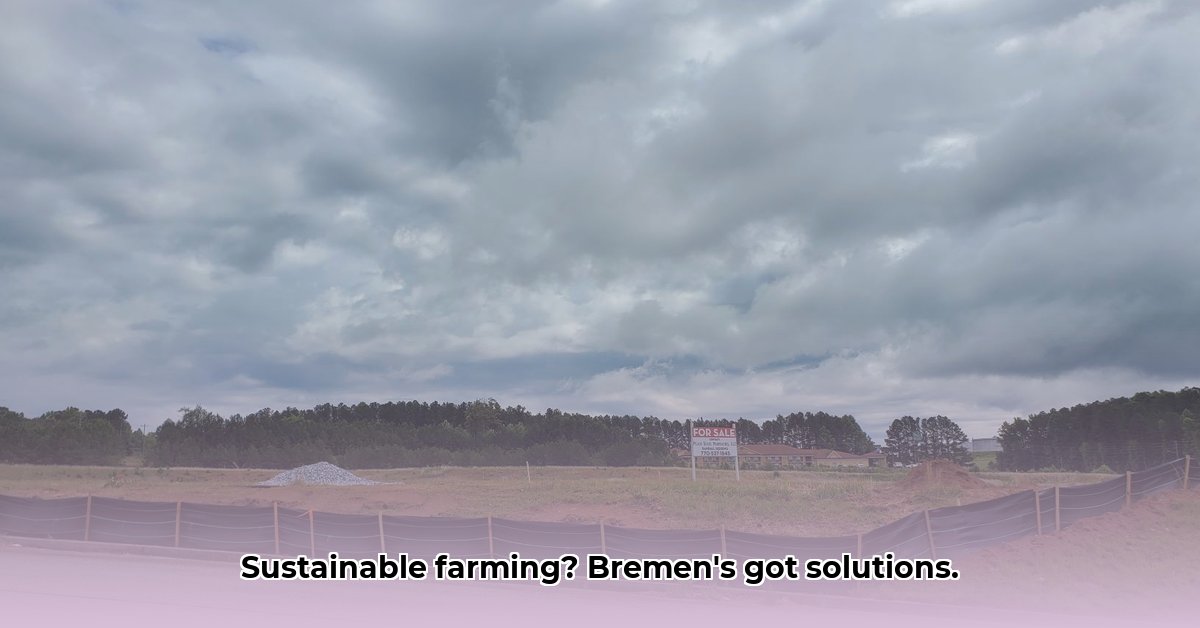
Bremen Tractor Supply Company (TSC), a major agricultural retailer, plays a significant, albeit indirect, role in promoting sustainable farming practices. While not explicitly marketed as an "eco-friendly" brand, TSC's extensive product range empowers farmers and gardeners to adopt environmentally conscious methods. This analysis explores TSC's contributions, limitations, and identifies actionable steps to further its positive impact on sustainable agriculture. For further information on sustainable farming techniques, check out this helpful guide: chicken tractor plans.
Bremen Tractor Supply's Product Range: Facilitating Sustainable Choices
TSC's vast inventory, encompassing animal feed, fencing, gardening tools, and fertilizers, provides the resources for various sustainable agricultural practices. High-quality animal feed contributes to healthier livestock, potentially reducing antibiotic use and improving animal welfare. The availability of organic seeds and fertilizers enables home gardeners to lessen their dependence on industrial agriculture, its associated environmental costs, and its carbon footprint. Furthermore, access to water conservation tools and efficient irrigation systems facilitates responsible water management. How does this broad accessibility translate into tangible environmental benefits? This requires further investigation and data collection.
TSC's Indirect Influence: Empowering Sustainable Actions
TSC's primary influence on sustainable agriculture is indirect. By offering a wide selection of products supporting eco-friendly farming, TSC lowers the barriers to entry for sustainable practices. However, the absence of publicly available data on TSC's direct contribution to specific sustainability metrics presents a challenge. For example, while organic fertilizer is available, there is no readily available data on the sales volume of these products in relation to conventional options. To what extent does TSC's product availability actually translate into measurable reductions in pesticide use or carbon emissions by individual farmers? This question requires further research.
Limitations and the Need for Transparency
A significant limitation is the lack of publicly available data quantifying TSC's direct contribution to sustainable agriculture. Without concrete figures on water conservation, reduced pesticide use, or carbon footprint reduction linked to TSC sales, a complete assessment of its environmental impact remains elusive. This lack of transparency hinders a complete understanding of the store’s role and the impact of the available products.
Actionable Recommendations: A Collaborative Approach
To enhance TSC's contribution to sustainable agriculture, several actionable steps are necessary:
For Tractor Supply Company Management:
- (0-1 Year): Conduct a comprehensive environmental impact assessment, analyzing supply chain practices and sales data to identify trends in sustainable product purchases.
- (2-3 Years): Develop a transparent sustainability plan with specific, measurable, achievable, relevant, and time-bound (SMART) goals, actively promoting sustainably sourced products and educating stakeholders.
- (5+ Years): Invest in research collaborations to explore innovative sustainable product development and supply chain enhancements, regularly reporting on progress to ensure accountability.
For Farmers and Gardeners:
- Short-Term: Utilize TSC resources to improve efficiency, minimizing waste and resource use, and seeking expert advice on sustainable farming techniques.
- Long-Term: Adopt more sustainable farming practices, actively participating in educational programs to expand knowledge and expertise in environmentally conscious farming.
For Researchers and NGOs:
- Ongoing: Collaborate with TSC to collect data on its indirect contributions to sustainable agriculture, quantifying the impact of product availability on farming practices and environmental outcomes.
Regulatory Landscape and Risk Assessment
While current regulations don't directly address TSC's sustainability performance, future regulations on sustainable sourcing and waste management will likely impact its operations. Proactive monitoring and adaptation are crucial.
| Risk Category | Likelihood | Impact | Mitigation Strategy |
|---|---|---|---|
| Negative environmental impact | Medium | High | Promote sustainable products, invest in supply chain improvements, and reduce waste. |
| Supply chain sustainability issues | Low | High | Implement stringent supplier vetting processes focused on ethical and sustainable practices. |
| Regulatory changes | Medium | High | Actively monitor and adapt to evolving regulations related to environmental sustainability. |
| Reputational risk | Low | High | Increase transparency about sustainability efforts and actively communicate progress. |
Conclusion: The Path Forward
Bremen Tractor Supply plays a multifaceted role in sustainable agriculture. Through product availability, it indirectly empowers sustainable practices. However, a lack of publicly available data limits a complete understanding of its impact. Increased transparency, collaboration among stakeholders, and further research are crucial to unlocking the full potential of TSC's contribution to a more sustainable future in agriculture. Only through such concerted efforts can we fully assess and amplify the positive environmental effects of this retail giant.